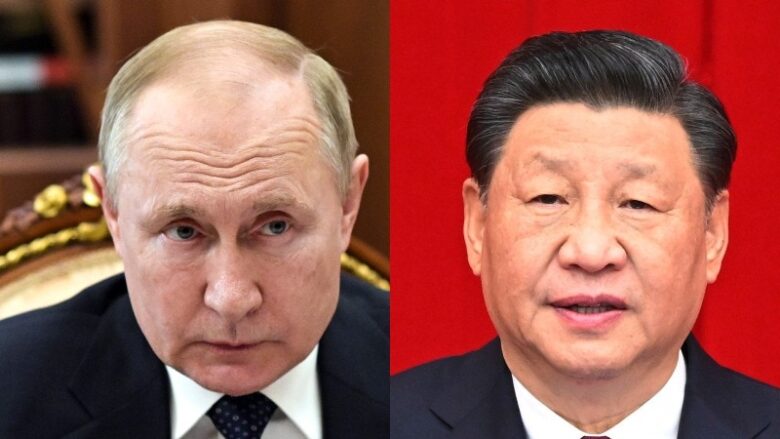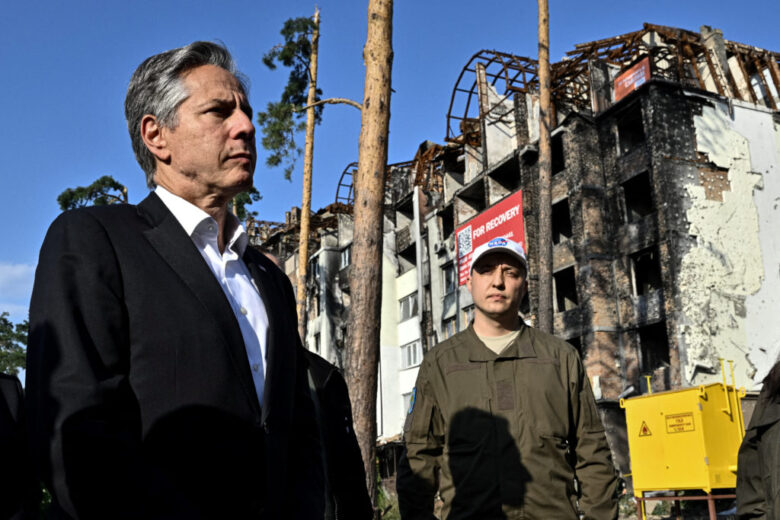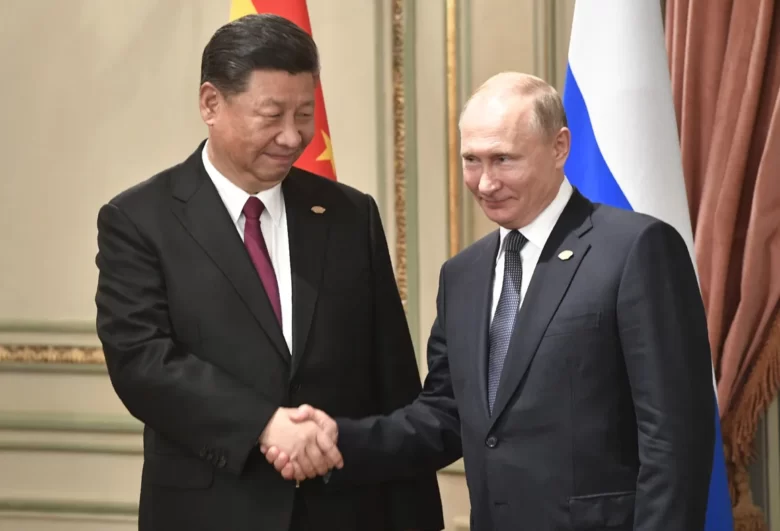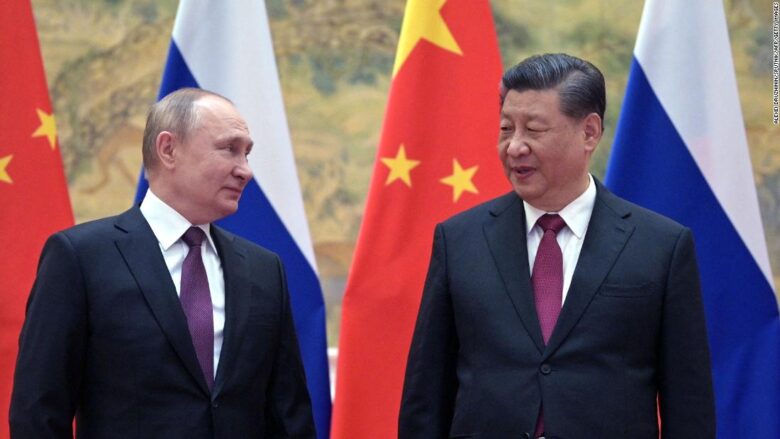Ukraine’s reversal offensive, which began in late August, has overwhelmed the Russian army and recaptured almost all of the eastern Kharkov Oblast by September 11. Will the war continue to move in Ukraine’s favor? Or is there any possibility that Russia will reach for nuclear or chemical weapons in an attempt to turn the tables?
The Possibility of Russia Using Nuclear Weapons

First, let us review developments since late August.
On August 24, the Joe Biden administration of the United States decided to provide additional military assistance to Ukraine amounting to $2.98 billion (about 420 billion yen). Not only was this the largest single amount of aid ever provided, but the contents of the aid, including air defense systems, long-range artillery, and ammunition, were also large-scale and took several years to complete.
In a statement announcing the aid, President Biden said, “The United States is committed to supporting the Ukrainian people as long as they continue to fight to defend their sovereignty.” This language almost amounted to “treating Ukraine as an ally.
Until then, support had been, in a manner of speaking, half-hearted, “don’t lose, but don’t win too much. For example, the support announced on May 30 included a high-mobility rocket artillery system called “HIMAS,” but the range was deliberately shortened so that it would not reach Russia.
By comparison, the August support gave the impression of being much more serious. One reason for this is that there was growing criticism in the U.S. that the Biden administration’s stance was “very half-hearted.
For example, the Wall Street Journal, in an editorial titled “Biden Ambiguous on Support for Ukraine” on May 31, criticized the administration for “neither winning the war nor forcing a stalemate in Ukraine’s favor.
That is not all.
I believe that this is because the United States has been leaning toward the judgment that Russian President Vladimir Putin “cannot and will not use nuclear weapons” after all. If they were seriously worried about the possibility that Putin might seriously reach for the nuclear button, they would have hesitated to provide bold military assistance.
The U.S. knows to a considerable extent what the Russian military is up to, either through reconnaissance by military satellites, intercepted communications, or information from inside Russia. For example, the New York Times reported on May 4 that “classified U.S. intelligence is helping to kill Russian generals.
With such a track record, the U.S. may be growing increasingly confident that it can figure out in advance if Russia intends to use nuclear weapons.
The Ukrainian military has the upper hand, but…
The Ukrainian military launched a full-scale offensive just after the U.S. shifted to an aggressive supportive stance, and CNN reported the first news of the offensive on August 29, five days after the Biden administration’s announcement.
According to the September 13 New York Times, U.S. presidential aide Jake Sullivan and U.S. Joint Chiefs of Staff Chairman Mark Millimeter had been consulting with their Ukrainian counterparts for several months to formulate a plan. The U.S. support is part of that process. In other words, this operation was in effect a joint operation by the United States, the United Kingdom, and Ukraine.
Will Ukraine be able to maintain its superiority? I am not optimistic.
In an interview with Bloomberg Television on September 12, former U.S. Defense Secretary Leon Panetta said, “(The offensive) is both pivotal and dangerous.
———-
We are at a critical juncture. If we can push Mr. Putin over the edge, he will fight back. Some in Moscow have criticized him for being forced to retreat during the current offensive. Mr. Putin has, in fact, attacked infrastructure. He may even get his hands on a war zone nuke.
———-
Just before the offensive, some experts warned of the possibility of a nuclear war. He is Professor John Mearsheimer of the University of Chicago, a major proponent of aggressive realism.
On August 17, the professor contributed an article titled “Playing with Fire in Ukraine” to the foreign affairs journal Foreign Affairs, in which he sternly warned against optimism. It follows.
———-
[Western policymakers] appear to be unanimous in their view that That is, “the confrontation will reach a stalemate,” “a weakened Russia will eventually accept a peace agreement favorable to the United States, NATO (North Atlantic Treaty Organization), and Ukraine,” and “both the United States and Russia are aware of the advantages to be gained by escalating the war, but a catastrophe can be avoided. Hardly anyone thinks the U.S. will directly intervene in the fighting or that Russia will use nuclear weapons.
———-
But that would be “too rash,” he criticizes.
———-
〈Even if a catastrophic escalation could be avoided, it is entirely uncertain whether the fighting groups would be capable of managing such a danger. The danger is far greater than common sense would suggest. We should be especially wary of the possibility that Europe could be wiped out in a nuclear war.
———-
The U.S. in a major shift in strategy

The professor noted U.S. Defense Secretary Lloyd Austin’s statement that “we want to weaken Russia.” In my column published on April 29, I wrote that the U.S. has made a major shift in strategy, citing this statement, and the professor noted that
———-
〈The U.S. has declared its intention to knock Russia off its great power status and knock it out. The Secretary of Defense said in July, “Our support is working. The Russians think they can crush us, but they have miscalculated. There is no longer any room for compromise.
———-
The professor pointed to a change in U.S. policy, citing specific examples. These include the provision of a multi-role rocket system called Hymers, the provision of MIG-29 fighter jets through Slovakia, and the “hidden U.S. fighters and spy networks,” as reported by the New York Times.
This New York Times article (June 25) is interesting. The United States and its Western allies are training Ukrainian special forces at bases they have established in Germany, France, and Britain. U.S. Central Intelligence Agency (CIA) personnel are providing top-secret information to the Ukrainian military in Kiev, according to the report.
The professor then noted that
———-
There are three scenarios in which Vladimir Putin could use nuclear weapons: one is a case in which the U.S. or NATO joins the fight. The second is when he uses them to turn the tables on the battlefield. The third is when there is no diplomatic solution and the war has reached a stalemate that is very hard on Russia.
Many people are underestimating the danger of an escalation of the war. War has its own logic, and it is difficult to predict its course. All we can do is hope that our leaders manage the war to avoid catastrophic escalation.
———-
The world is watching the China-Russia summit.

A major key player in the course of the war is China.
Putin and Chinese General Secretary (President) Xi Jinping met on September 15 in Uzbekistan, where the Shanghai Cooperation Organization summit will be held. In response to the deteriorating war situation, Mr. Putin would have hoped to obtain “tacit approval” in advance from Mr. Xi not only for military assistance but also for the “use of nuclear weapons” if possible.
As of 9 p.m. on September 15, details of the meeting had not been disclosed, but it is likely that Mr. Xi will not agree to the request for either military assistance or approval for the use of nuclear weapons. There is no way that Mr. Xi, who has made the election of a third general secretary at the Communist Party congress in October his top priority, can take such a risk.
If Russia does indeed use nuclear weapons after China has given its consent, China will inevitably come under criticism from the rest of the world. If this were to happen, it would inevitably have a negative impact on China’s major goal of seizing Taiwan.
China has declared a policy of “no first use” of nuclear weapons. Even if this is only a posture, it would give the West an excellent weapon for its criticism of China. There is also the question of whether Russia or China will take the lead in the confrontation with the United States. This is directly related to the creation of the postwar world order.
Putin has been forced into a state of “siege” by China, which he relies on for support.


コメント